Wary of harming Israel ties, Egypt looks to bury popular praise for border attack
After deadly incident leaves 3 IDF soldiers dead, Cairo has attempted to prevent gunman Mohamed Salah Ibrahim from being worshiped as a martyr, with limited success
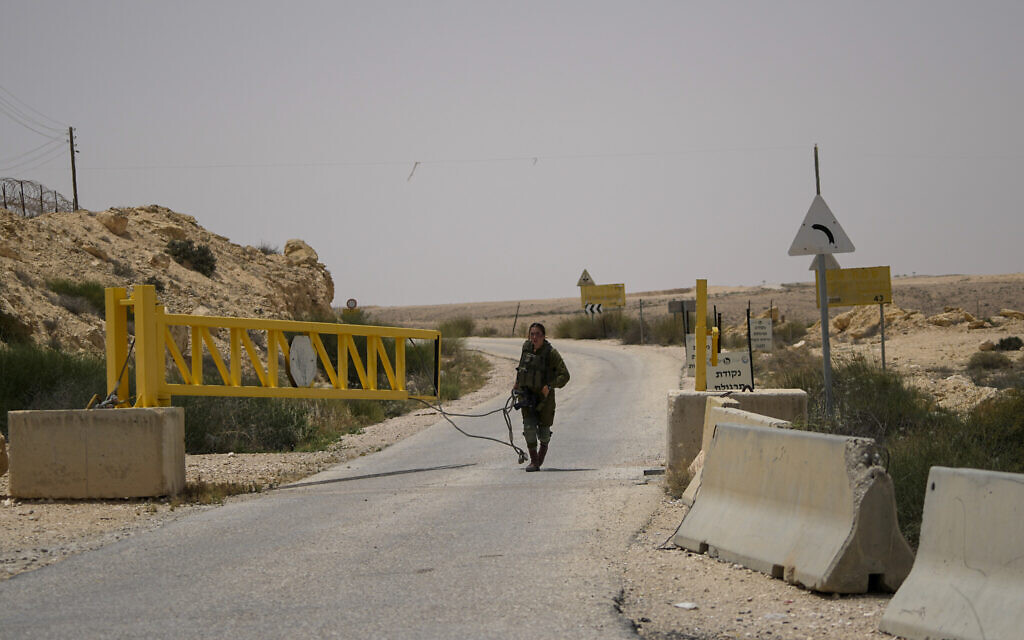
At 4:20 in the afternoon of October 5, 1985, an Egyptian soldier manning a checkpoint in the Red Sea resort town of Ras Burqa raised his gun and began firing into a crowd of Israeli tourists.
Seven Israeli civilians, including four children, were slain in the attack.
At the time, Hosni Mubarak’s government moved quickly to keep the soldier, Suleiman Khater, from becoming a national hero and jeopardizing the peace treaty with Israel that had been signed only six years before.
Authorities called Khater mentally ill, and he was found dead in his cell days after being sentenced to life in prison.
The regime called his death a suicide, but Khater’s letters, published in 2014, showed he was afraid guards were planning to kill him.
Despite Cairo’s efforts, opposition politicians and journalists hailed Khater as a hero and role model, and rallies for him erupted at Egyptian universities.

In response, pro-regime outlets revealed that Khater had mostly gunned down women and children, but that too didn’t keep him from being lauded across the Arab world and in Tehran.
Nearly four decades later, Cairo is operating in a similar fashion in response to an attack in which another member of Egypt’s security forces opened fire on Israeli troops, killing three Israel Defense Forces soldiers.
Like Mubarak, Abdel Fattah el-Sissi’s regime has sought to keep the attacker from becoming a national hero and complicating its ties with Israel.
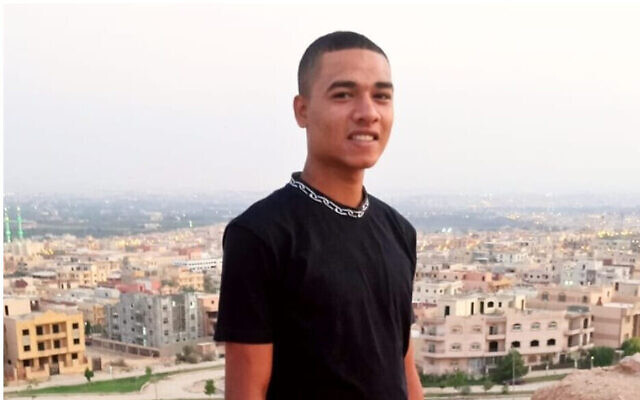
But as was the case in 1985, it seems that the government’s attempts have largely failed.
“The regime wants to remove the issue from the public agenda as quickly as possible,” explained Ofir Winter, a senior research fellow at the Institute for National Security Studies and at Tel Aviv University.
Moving on quickly
Cairo has several reasons to look to move rapidly beyond the attack.
For one, it fears being seen as unable to control its own soldiers.
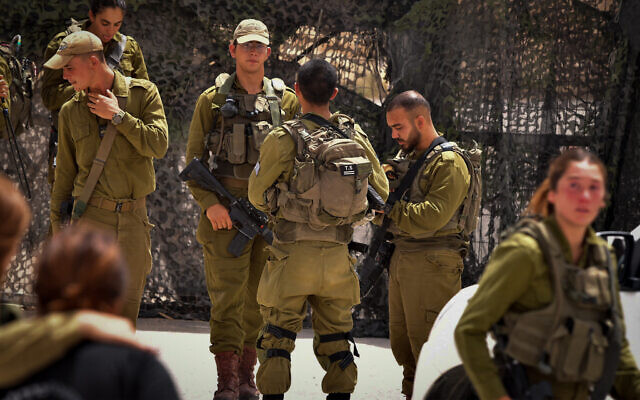
Egypt is also keen on selling the public the idea that everything, as always, is in order, noted Eran Lerman, vice president of the Jerusalem Institute for Strategy and Security and past deputy director of Israel’s National Security Council.
“This points at a known pattern in Egyptian media and official communications, they don’t admit that something is wrong,” he said.
But Sissi’s main concern appears to be ensuring that policeman Mohamed Salah Ibrahim, who was killed in a shootout with Israeli forces, doesn’t become a martyr or inspire copycat attacks.
Sissi’s government never admitted that Ibrahim attacked Israeli forces intentionally, instead claiming that he was chasing drug smugglers — that is, cooperating with Israel in protecting its border, without naming him.
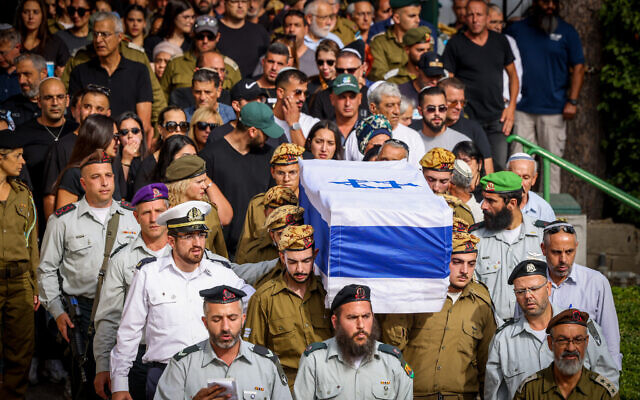
“During the chase, the security official crossed the security fence” and ended up in an unintended gunfight with IDF forces, according to the Egyptian military.
Moreover, Egypt didn’t give Ibrahim a mass military funeral, instead burying him quickly in his home village of Al-Amar Al-Kubra. They did not let his mother attend, permitting only his uncle and brother, both of whom were interrogated.
Security forces also cordoned off his family’s house, and limited visitors to the mourners.
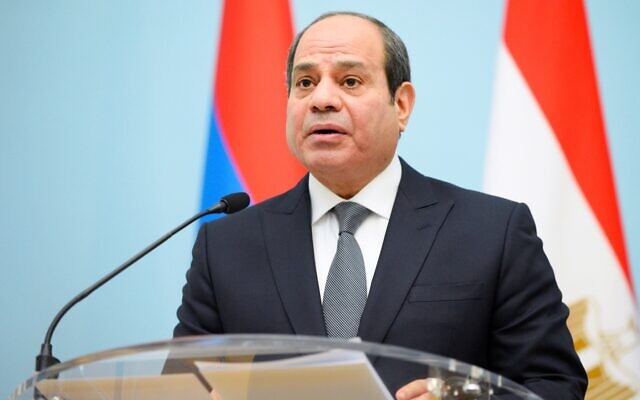
“There was an attempt to diminish his memory, so he doesn’t turn into another Suleiman Khater,” said Winter.
“It teaches us — and hints to the public — that we are not talking about a hero or patriot, but a terrorist who acted against his orders and against Egypt’s national interest,” he continued.
Egyptian interests
Egypt recognizes that it shares key interests with Israel, but there have been signs of stress on the relationship since the Netanyahu government came to power in late December.
Sissi was one of the last Arab leaders to congratulate Netanyahu on returning to office, and hasn’t invited the prime minister for an official visit. Former prime minister Naftali Bennett was summoned to Sharm el Sheikh twice during his short tenure as premier.
But Egypt still wants to maintain close security coordination with Jerusalem, especially in fighting terror and smuggling in the Sinai. It also needs continued cooperation on energy and tourism, important sources of foreign currency for Egypt’s economy.
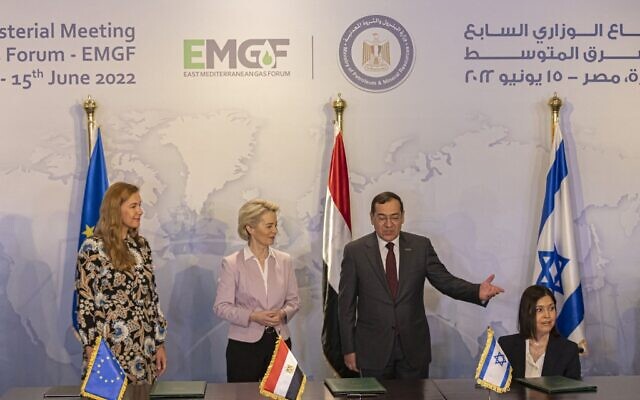
At the same time, Cairo wants to strengthen the Palestinian Authority in Gaza at the expense of Hamas, and would like to see a long-term agreement guaranteeing quiet in the Strip.
Hardliners backing Netanyahu have pushed for punishing crackdowns on Palestinians, keeping the relationship with Gaza belligerent.
“This government is seen in Egypt as a problematic partner for those goals,” said Winter.
Egyptian media portrayed Cairo as surprised by the airstrikes on Palestinian Islamic Jihad leaders at the start of Operation Arrow and Shield in May, which the government perceived as contradicting the signals it was getting from Jerusalem.
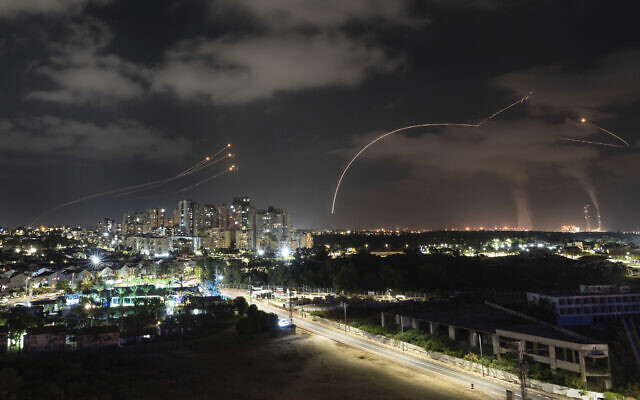
“State-run media claimed that Israel was acting based on domestic political calculations — stabilizing the tottering coalition,” said Winter.
The tone of condemnations from Sissi and Egypt’s Foreign Ministry has also gotten somewhat sharper since Netanyahu returned to power.
On Monday, Egyptian Foreign Minister Sameh Shoukry met with Tor Wennesland, the UN Special Coordinator for the Middle East Peace Process, and expressed deep concern over Israel’s incursions into Palestinian areas of the West Bank, according to a readout from Cairo.
Immunity
Despite its frustration, “Egypt is working to ease tensions,” said Nimrod Goren, Senior Fellow for Israeli Affairs at the Middle East Institute. He pointed to its mediation in Gaza and the regional summit in Sharm el Sheikh in March meant to calm tensions ahead of Ramadan.
But its effort to tamp down on praise for Ibrahim on the street, which has for decades rejected official efforts at normalization and is still largely hostile toward Israel, appears to have largely failed.
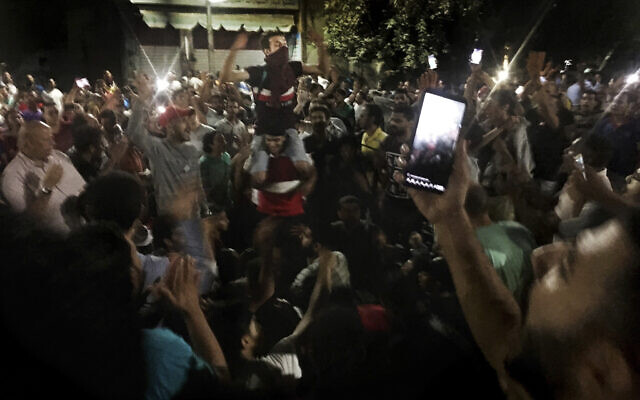
“On the popular level, we saw signs of adoration and support, underscoring the gap between the official posture toward Israel and trends in public opinion,” said Goren.
In public discourse and on social media, many lauded Ibrahim’s actions.
“Commentators, some of them exiled opponents of the regime who identify with the Muslim Brotherhood, describe him as a national hero and martyr, and justify the attack on Israeli soldiers,” said Winter. “They see the act as evidence that the Egyptian people oppose peace.”
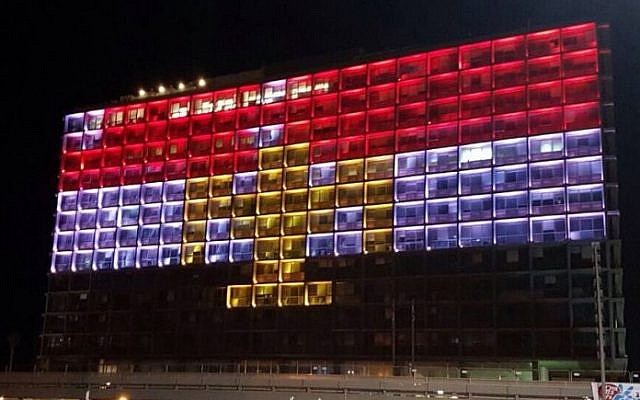
At the same time, there are voices in Egypt who recognize that peace with Israel serves Egypt’s national interests and portray Ibrahim as someone who harmed the state and its security forces.
Despite the gripes and grumbles toward Israel, Egypt is determined to show its reliability as a partner on security. On Sunday, senior Egyptian defense officials met with top IDF officers in Cairo to present initial findings from their investigation into the incident.
The relationship, said Goren, “has a certain immunity.”
There's no paywall on The Times of Israel, but the journalism we do is costly. As an independent news organization, we are in no way influenced by political or business interests. We rely on readers like you to support our fact-based coverage of Israel and the Jewish world. If you appreciate the integrity of this type of journalism, please join the ToI Community.

We’re really pleased that you’ve read X Times of Israel articles in the past month.
That’s why we started the Times of Israel eleven years ago - to provide discerning readers like you with must-read coverage of Israel and the Jewish world.
So now we have a request. Unlike other news outlets, we haven’t put up a paywall. But as the journalism we do is costly, we invite readers for whom The Times of Israel has become important to help support our work by joining The Times of Israel Community.
For as little as $6 a month you can help support our quality journalism while enjoying The Times of Israel AD-FREE, as well as accessing exclusive content available only to Times of Israel Community members.
Thank you,
David Horovitz, Founding Editor of The Times of Israel









